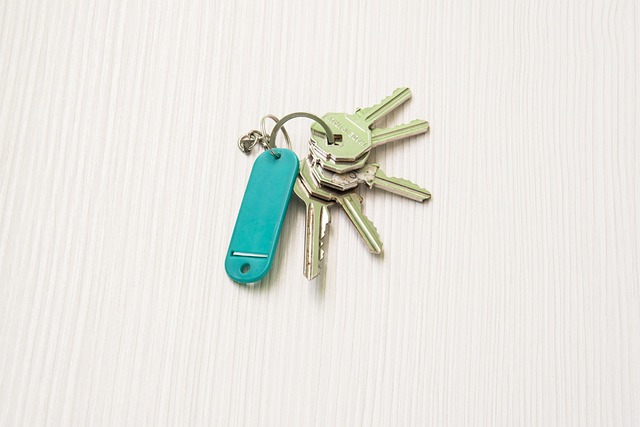Modern smart estate systems offer enhanced luxury living with automated features for convenience and security. However, cybersecurity risks arise from vulnerabilities like outdated software and weak passwords, making VIP estates susceptible to hacking. Robust protection demands advanced tech like encryption, MFA, biometric identification, and real-time AI monitoring. Regular maintenance, updates, and proactive audits are crucial to safeguard against cyber threats, ensuring comprehensive VIP estate protection.
In today’s digital age, smart estate systems offer unparalleled convenience but also introduce complex cybersecurity challenges. As homes become increasingly connected, securing these intelligent environments is paramount, especially for high-value properties and their occupants—a concept we refer to as VIP estate protection. This article explores crucial aspects, from understanding the vulnerabilities of smart estates to implementing advanced technologies and the importance of regular maintenance, all aimed at fortifying your digital haven.
Understanding Smart Estate Systems and Their Vulnerabilities
Smart estate systems, an integral part of modern luxury living, integrate technology seamlessly into homes, offering convenience and enhanced security. These systems typically include automated lighting, climate control, surveillance cameras, and access controls, all connected to a central hub for remote management. While providing a luxurious and efficient lifestyle, they also introduce new challenges in cybersecurity.
Vulnerabilities in these systems can arise from outdated software, poorly secured networks, or weak passwords. Hackers targeting VIP estate protection may exploit these weaknesses to gain unauthorized access, compromising privacy and security. From controlling smart devices to monitoring sensitive data, the potential risks are significant. Thus, implementing robust security measures is crucial for protecting high-value properties and the personal information of their owners.
Essential Cybersecurity Measures for VIP Protection
In the realm of smart estate systems, where technology integrates seamlessly with daily life, ensuring VIP estate protection is paramount. The first line of defense lies in robust cybersecurity measures that safeguard against unauthorized access and malicious attacks. This involves implementing strong encryption protocols for all data transmission and storage, ensuring only authorized personnel can access sensitive information. Additionally, regular system updates and patches are crucial to patching vulnerabilities that hackers could exploit.
VIP estate protection also necessitates advanced authentication mechanisms such as multi-factor authentication (MFA) and biometric identification. These measures add an extra layer of security, making it significantly harder for intruders to gain access, even if they obtain sensitive credentials. Monitoring systems capable of detecting unusual activity patterns and intelligent alarm systems that differentiate between false positives and genuine threats further enhance the overall security posture of the estate.
Advanced Technologies for Enhanced Security
In today’s digital age, smart estate systems have revolutionized VIP estate protection, offering unprecedented levels of security and convenience. These advanced technologies integrate AI, IoT, and biometric identification to create robust security frameworks. By leveraging artificial intelligence, these systems can learn and adapt to patterns, identifying potential threats with remarkable accuracy. For instance, motion sensors equipped with machine learning algorithms can distinguish between regular activity and suspicious behavior, triggering alerts in real-time.
Additionally, the integration of IoT (Internet of Things) devices enables a connected ecosystem where every component contributes to overall security. Smart locks, cameras, and environmental sensors communicate seamlessly, providing comprehensive surveillance. Biometric identification, such as facial recognition or fingerprint scanning, adds an extra layer of defense, ensuring that only authorized individuals can access the property. These technologies collectively enhance VIP estate protection, making homes more secure and resilient against potential cyber threats.
Regular Maintenance and Updates for Continuous Defense
Regular maintenance and timely updates are cornerstones of a robust cybersecurity strategy for smart estate systems. Just as physical security systems require regular checks and servicing, digital defenses need continuous nurturing to stay effective against evolving cyber threats. This includes promptly patching software vulnerabilities, updating firmware, and replacing outdated components with more secure alternatives. By maintaining a proactive approach, VIP estate protection can be ensured, ensuring that sensitive data and critical systems remain shielded from potential breaches or disruptions.
Furthermore, regular audits and security assessments help identify weaknesses and loopholes before malicious actors can exploit them. Staying current with the latest cybersecurity trends and best practices is crucial, as attackers continuously refine their tactics. Proactive maintenance not only strengthens defenses but also instills confidence in the integrity of the smart estate system, enhancing its overall resilience against cyber threats.
Smart estate systems offer unparalleled convenience, but they also introduce unique security challenges. By understanding these vulnerabilities and implementing essential cybersecurity measures, such as robust encryption and access controls, we can ensure VIP estate protection. Integrating advanced technologies like AI-driven threat detection and biometric authentication further fortifies defenses. Regular maintenance and prompt updates are vital to patching vulnerabilities and staying ahead of evolving cyber threats. Together, these strategies empower us to create secure digital homes, safeguarding our privacy and peace of mind in the modern world.
